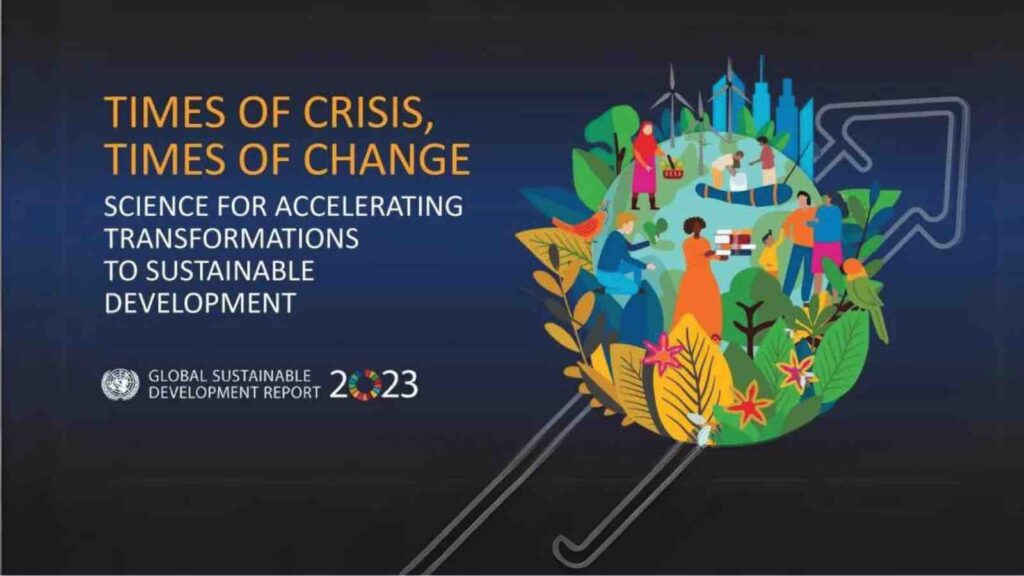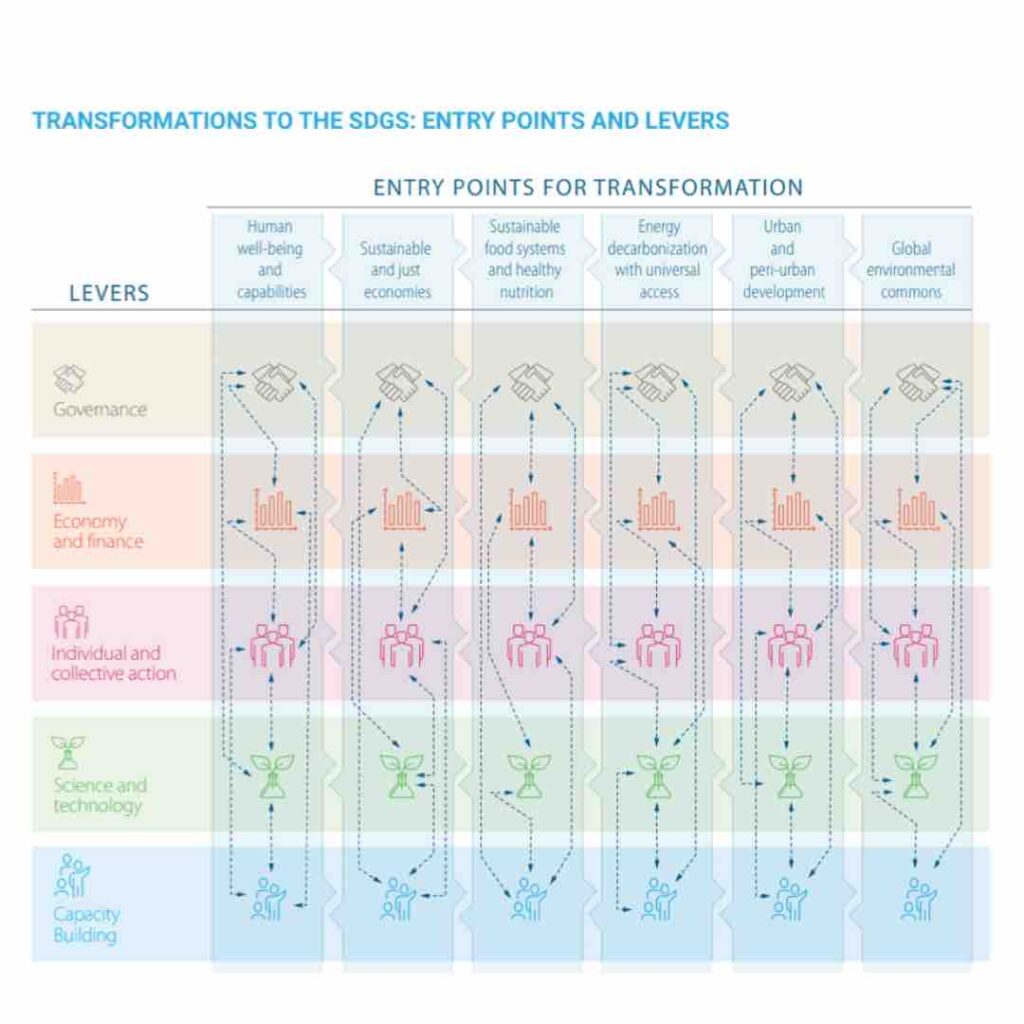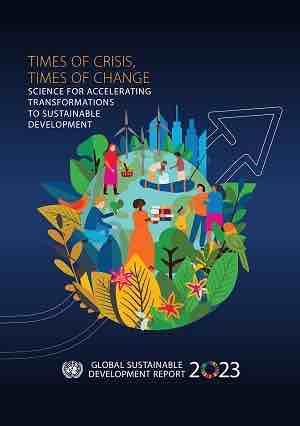What does the 2023 Global Sustainable Development Report reveal about our progress?
The 2023 Global Sustainable Development Report (GSDR) offers a crucial update on global progress towards achieving the Sustainable Development Goals (SDGs) set for 2030, highlighting the urgent need for accelerated capacity building for sustainable development amidst global challenges.
RELEVANT SUSTAINABLE GOALS
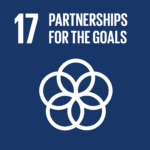
Global State of Affairs
According to UN Under-Secretary-General for Economic and Social Affairs, Li Junhua, the existing societal divides have been exacerbated by pandemic shutdowns, global conflicts, and cost-of-living crises. Although there has been some recovery, it remains fragile and uneven, with rising challenges undermining the commitment to ‘leave no one behind’.
The 2023 GSDR paints a sobering picture of the world’s progress towards the SDGs. Despite noteworthy progress in enhancing global connectivity between 2020 and 2023, the world is still distant or regressing from crucial targets such as ending extreme poverty, ensuring food security, reducing greenhouse gas emissions, eliminating fossil fuel subsidies, and preventing species extinction. The financing gap for achieving SDGs has also increased by 56% in 2020, amounting to USD 3.9 trillion.
Strategic Measures For Capacity Building
The 2023 GSDR suggests implementing national plans dedicated to investing in capacity building for sustainable development. Such strategic planning may necessitate the restructuring of policymaking and public administration to refine capacity-building mechanisms across various levels, stakeholders, and sectors.
The report underscores a critical call for heightened aspirations, coupled with the initiation of holistic, seamlessly integrated, and transformational interventions to herald a future marked by global advancement. In its 2019 iteration, the Global Sustainable Development Report (GSDR) paved the way by unveiling an organized framework meticulously built upon six pivotal entry points and four dynamic levers.
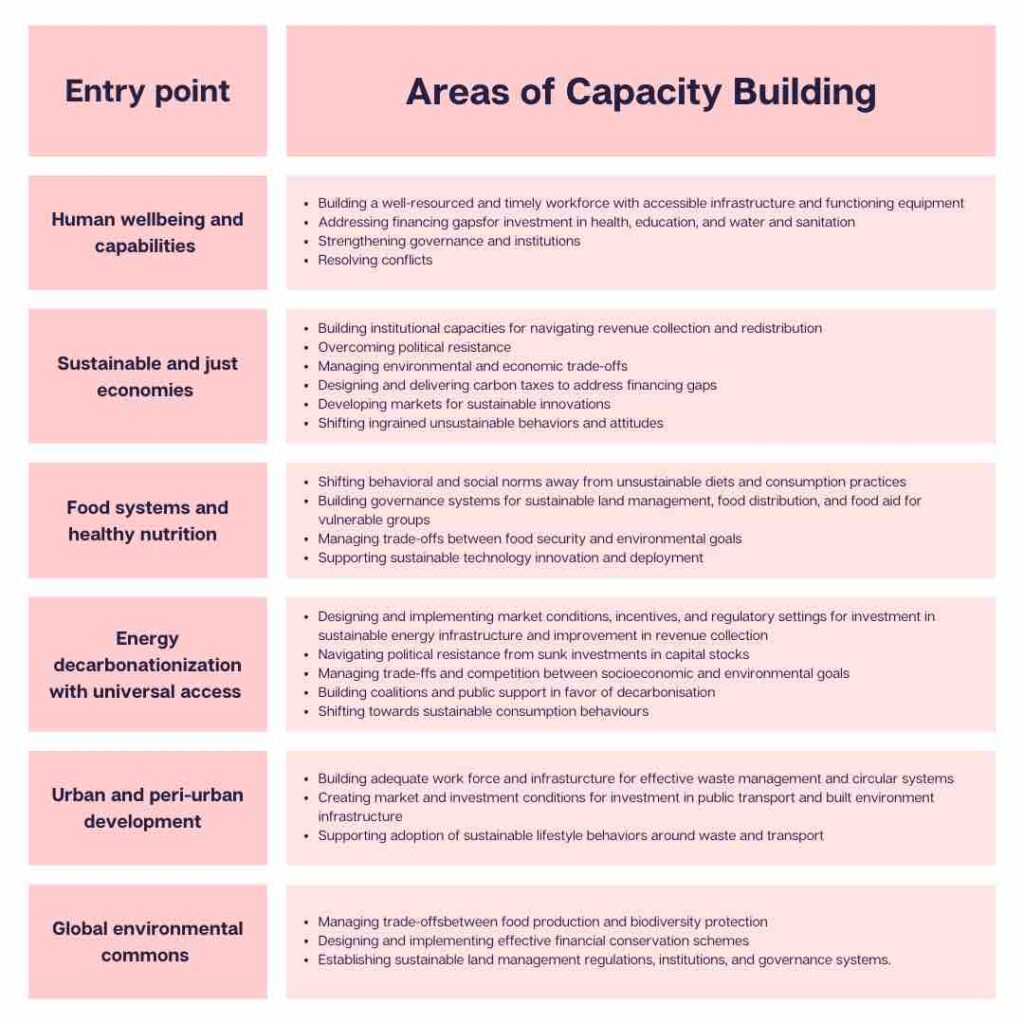
The 2023 Global Sustainable Development Report (GSDR) delineates several focused strategies aimed at enhancing capacity building:
- Transformation Management: This involves nurturing the development of key stakeholders, including policymakers, academics, CEOs, and Civil Society Organizations (CSOs), by fostering multi-sectoral and inter-ministerial capacities.
- Foresight Capacity: The emphasis here is on honing long-term strategic vision and enhancing adaptability to external shocks and emerging opportunities.
- Public Engagement: Efforts should be geared towards establishing secure and receptive spaces where meaningful dialogue can occur with various societal groups. This includes youth, philanthropists, women’s collectives, Indigenous communities, individuals living with disabilities, and other marginalized cohorts.
- Knowledge Production: There’s a call to fortify the mechanisms through which socially robust and inclusive scientific knowledge (encompassing Indigenous knowledge) is produced, validated, and disseminated.
- Science-Policy-Society Interface: The report recommends the creation of interactive platforms facilitating dialogue and cooperation among the triad of science, policy, and society. This initiative aims to bolster public confidence in scientific enterprise and discourse.
- Conflict Resolution and Negotiation Skills: Countries are urged to refine their approaches to navigating through the acceleration phase and enhancing their conflict resolution and mediation skills.
- SDGs and Business Practices: Large corporations and multinational entities are encouraged to integrate sustainability practices within their operational value chains. Concurrently, consumers are urged to actively demand better sustainability practices, effectively leveraging their collective voice.
Achieving the SDGs necessitates concerted efforts and decisive actions. The 2023 GSDR calls for improving underlying conditions such as climate change and inequality, establishing transformation frameworks and action plans, and promoting science that is multidisciplinary, equitably produced, openly shared, and socially robust. The report concludes, “Close collaboration at the science-policy-society interface among scientists, policymakers, and social actors is vital to building trust, establishing a scientific basis for progress, delivering findings, and effectively communicating these to society.
Read the full report here.
You may also be interested in :
Born in A Warming World : Picturing The Reality Of Climate Change Across Generations


